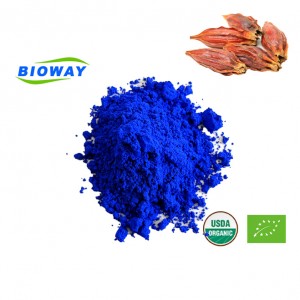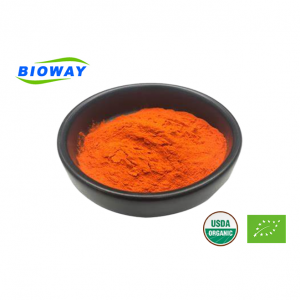Best Organic Rice Milk Powder for Dairy and Soy Alternatives
Organic rice milk powder is a dairy-free alternative to traditional milk powder made from rice that has been organically grown and processed. It is typically made by extracting the liquid from rice and then drying it into a powder form. Organic rice milk powder is often used as a milk substitute for those who are lactose intolerant, allergic to dairy, or following a vegan diet. It can be reconstituted with water to make a creamy, plant-based milk alternative that can be used in cooking, baking, or enjoyed independently.
Latin Name: Oryza sativa
Active Ingredients: Protein, carbohydrates, fat, fiber, ash, moisture, vitamins, and minerals. Specific bioactive peptides and anthocyanins in certain rice varieties.
Classification Secondary Metabolite: Bioactive compounds like anthocyanins in black rice, and phytochemicals in red rice.
Flavor: Generally mild, neutral, and slightly sweet.
Common Use: Alternative to dairy milk, suitable for lactose-intolerant individuals, used in various food products like puddings, ice creams, and beverages.
Origin: Cultivated globally, originally domesticated in Asia.
| Items of Analysis | Specification(s) |
| Appearance | Light yellow powder |
| Smell and Taste | Neutral |
| Particle Size | 300 mesh |
| Protein(dry basis)% | ≥80% |
| Total fat | ≤8% |
| Moisture | ≤5.0% |
| Ash | ≤5.0% |
| Melamine | ≤0.1 |
| Lead | ≤0.2ppm |
| Arsenic | ≤0.2ppm |
| Mercury | ≤0.02ppm |
| Cadmium | ≤0.2ppm |
| Total Plate Count | ≤10,000cfu/g |
| Moulds and Yeasts | ≤50 cfu/g |
| Coliforms, MPN/g | ≤30 cfu/g |
| Enterobacteriaceae | ≤100 cfu/g |
| E.Coli | Negative /25g |
| Salmonella | Negative /25g |
| Staphylococcus aureus | Negative /25g |
| Pathogenic | Negative /25g |
| Alfatoxin(Total B1+B2+G1+G2) | ≤10 ppb |
| Ochratoxin A | ≤5 ppb |
1. Crafted from organic rice grains and carefully dehydrated.
2. Thoroughly tested for metals and microbial to ensure high quality.
3. Dairy-free alternative with a mild, naturally sweet flavor.
4. Suitable for those with lactose intolerance, vegans, and health-conscious individuals.
5. Packed with a balance of carbohydrates, proteins, and essential minerals.
6. Versatile and adaptable, blending seamlessly into various preparations.
7. Offers soothing qualities and can be used in a wide range of beverages and dietary supplements.
8. 100% Vegan, Allergy-Friendly, Lactose-free, Dairy-free, Gluten Free, Kosher, Non-GMO, Sugar-Free.
1 Use as a dairy-free alternative in beverages, cereals, and cooking.
2 Suitable for creating comforting drinks and as a base in dietary supplements.
3 Versatile ingredients for a wide range of culinary and therapeutic applications.
4 Blends seamlessly into various preparations without overpowering other flavors.
5 Offers soothing qualities and adaptability for diverse uses.
Storage: Keep in a cool, dry, and clean place, Protect from moisture and direct light.
Bulk Package: 25kg/drum.
Lead Time: 7 days after your order.
Shelf Life: 2 years.
Remark: Customized specifications also can be achieved.

25kg/case

Reinforced packaging

Logistics security
Express
Under 100kg, 3-5Days
Door to door service easy to pick up the goods
By Sea
Over300kg, Around 30 Days
Port to port service professional clearance broker needed
By Air
100kg-1000kg, 5-7Days
Airport to airport service professional clearance broker needed

Bioway gains certifications such as USDA and EU organic certificates, BRC certificates, ISO certificates, HALAL certificates, and KOSHER certificates.

Rice milk and regular milk have different nutritional profiles, and whether rice milk is better for you than regular milk depends on individual dietary needs and preferences. Here are some points to consider:
Nutritional Content: Regular milk is a good source of protein, calcium, and other essential nutrients. Rice milk may be lower in protein and calcium unless fortified.
Dietary Restrictions: Rice milk is suitable for those with lactose intolerance, dairy allergies, or following a vegan diet, while regular milk is not.
Personal Preferences: Some people prefer the taste and texture of rice milk over regular milk, making it a better option for them.
It’s important to consider your individual nutritional needs and dietary restrictions when choosing between rice milk and regular milk. Consulting with a healthcare professional or nutritionist can help you make an informed decision based on your specific circumstances.
Both rice milk and almond milk have their own nutritional benefits and considerations. The choice between the two depends on individual dietary needs and preferences. Here are some points to consider:
Nutritional Content: Almond milk is typically higher in healthy fats and lower in carbohydrates than rice milk. It also provides some protein and essential nutrients. Rice milk may be lower in fat and protein, but it can be fortified with nutrients like calcium and vitamin D.
Allergies and Sensitivities: Almond milk is not suitable for those with nut allergies, while rice milk is a good alternative for individuals with nut allergies or sensitivities.
Taste and Texture: The taste and texture of almond milk and rice milk differ, so personal preference plays a role in determining which one is better for you.
Dietary Preferences: For those following a vegan or dairy-free diet, both almond milk and rice milk are suitable alternatives to regular milk.
Ultimately, the choice between rice milk and almond milk depends on individual nutritional needs, taste preferences, and dietary restrictions. Consulting with a healthcare professional or nutritionist can help you make an informed decision based on your specific circumstances.












